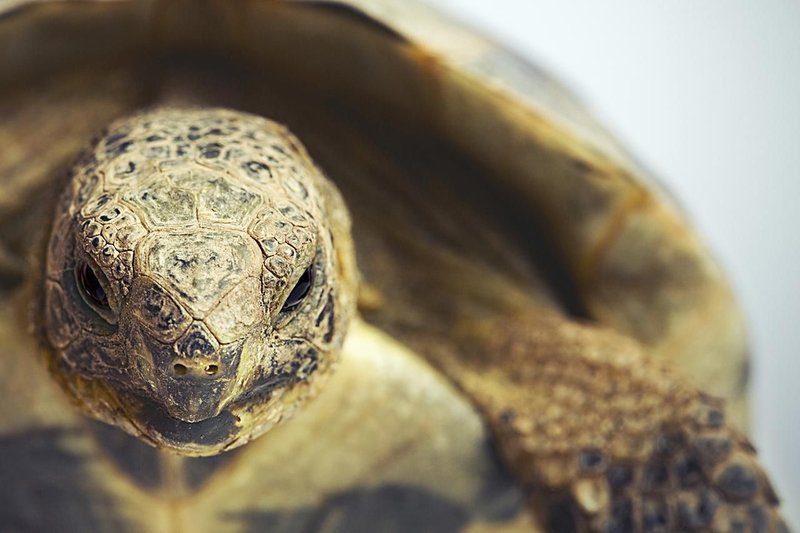
Imagine a tortoise, roaming around your living room, exploring its surroundings at its own pace. They may not fetch a ball or curl up on your lap like a kitten, but they have their own charm. The Greek tortoise, known scientifically as *Testudo graeca*, is not only one of the most common tortoise species in captivity, but it’s also known for its gentle disposition. So, if you’re curious about how these tortoises interact with humans and other pets, you’re in the right place.
In this article, we’ll explore their behavior, social interactions, and compatibility with various pets. You might be pleasantly surprised to learn how these slow and steady creatures can fit into a household.
Understanding the Greek Tortoise’s Behavior
To appreciate whether Greek tortoises are friendly, it’s important to understand their behavior. Unlike dogs that wag their tails or cats that purr, tortoises communicate differently. They might not be the most vocal pets, but they definitely have their quirks. Greek tortoises are generally known for being quite docile.
These tortoises have a natural, curious demeanor. They tend to explore their environment, and they can develop a sort of bond with their human caretakers. You might find that your tortoise enjoys being gently stroked on its shell or that it recognizes you when you enter the room. This bonding often comes from consistent interaction, like feeding and handling.
That said, don’t expect them to run to you when you call their name! They operate on their own timeline. Greek tortoises are not the most active pets, but their slow and steady pace can be a calming presence in your home.
Can Greek Tortoises Be Handled?
You might be wondering if handling a Greek tortoise is a good idea. The answer is yes, but with some gentle care. When they’re young, they can be more receptive to handling, and they often enjoy it. Here’s how to make handling a positive experience for both of you:
- Start slow: When you first bring your tortoise home, give it a few days to adjust before handling. Let it get comfortable in its new environment.
- Be gentle: Always pick your tortoise up carefully, supporting its body. They can feel insecure if they’re handled too roughly.
- Watch for signs: If your tortoise seems stressed, like pulling its head into its shell or trying to wiggle away, it might be best to put it back down.
That being said, many tortoise owners find that with regular handling, their pets become more accustomed to being held. Just remember, they’re not like cats or dogs! They may not crave affection in the same way.
Interaction With Other Pets
Now, let’s talk about how Greek tortoises get along with other pets. It’s common for households to have multiple types of pets, and if you’re considering adding a Greek tortoise to the mix, you’ll want to be cautious.
Greek tortoises are generally peaceful creatures. They don’t show aggression towards other animals, but that doesn’t mean they should roam freely with them. Here’s a breakdown of how they might interact with common household pets:
- Dogs: Some dogs may see a tortoise as an intriguing toy. This can lead to accidental harm. It’s best to supervise any interactions closely.
- Cats: Cats are usually indifferent to tortoises, but that can change if they see them as a moving object. Again, supervision is key!
- Other reptiles: It’s generally not a good idea to house tortoises with other reptiles. Different species can have varying habitat needs and dietary requirements.
Taking time to monitor how your Greek tortoise interacts with other pets can help avoid any potential issues.
Socialization Tips for Your Greek Tortoise
If you’re looking to help your Greek tortoise feel more friendly and engaged, socialization is key. Just like humans, tortoises benefit from interaction and stimulation. Here are some tips for socializing your tortoise:
1. Routine Handling: Regular, gentle handling helps them get used to being around you. Just a few minutes a day can be beneficial.
2. Enrichment Activities: Create an engaging environment with different textures and objects to explore. Hide treats in their enclosure to encourage foraging behavior.
3. Observation: Spend time just watching your tortoise. This builds familiarity and trust. Who knows, you might even learn their quirky habits!
By encouraging socialization, you not only enhance your tortoise’s life but also your bond with them. It can be rewarding to see them become more confident and curious.
Diet and Its Impact on Behavior
You might be surprised to learn that a Greek tortoise’s diet can influence its social behavior. A well-fed tortoise is a happy tortoise! Here’s what you need to know about their dietary needs:
Greek tortoises thrive on a diet rich in fiber and low in protein. This typically includes:
- Leafy greens (like romaine lettuce, collard greens, or dandelion greens)
- Vegetables (such as zucchini and bell peppers)
- Occasional fruits (in small amounts, like strawberries or melons)
Feeding them a balanced diet not only keeps them healthy but also affects their mood and activity level. A tortoise that feels good is more likely to engage with its human and explore its environment.
Common Misconceptions About Greek Tortoises
There are quite a few myths about Greek tortoises that can lead to misunderstandings. Here are a couple of common misconceptions:
– Myth 1: Tortoises don’t understand anything.
– Reality: They may not understand commands, but they can learn routines, recognize their owners, and even associate specific actions with feeding times.
– Myth 2: Tortoises can live in any environment.
– Reality: They need specific habitat conditions, including temperature, humidity, and safe spaces for hiding. A happy tortoise is one that feels secure in its environment.
By educating yourself about these myths, you’ll be better equipped to care for your tortoise and understand its behavior.
So, are Greek tortoises friendly with humans and other pets? The short answer is: yes—they can be quite friendly, especially with proper care and socialization. They may not offer companionship in the same way dogs or cats do, but they have their unique charm and can form bonds with their humans.
When it comes to other pets, caution is essential. With supervision and careful introductions, Greek tortoises can coexist nicely in a multi-pet household. Their slow, steady nature makes them fascinating to observe, and with the right approach, you can enjoy a meaningful relationship with your shelled friend.
By understanding their needs and behavior, you’ll be well on your way to providing a loving home for your Greek tortoise. So go ahead, take the plunge, and enjoy the unique experience of caring for these wonderful creatures!

